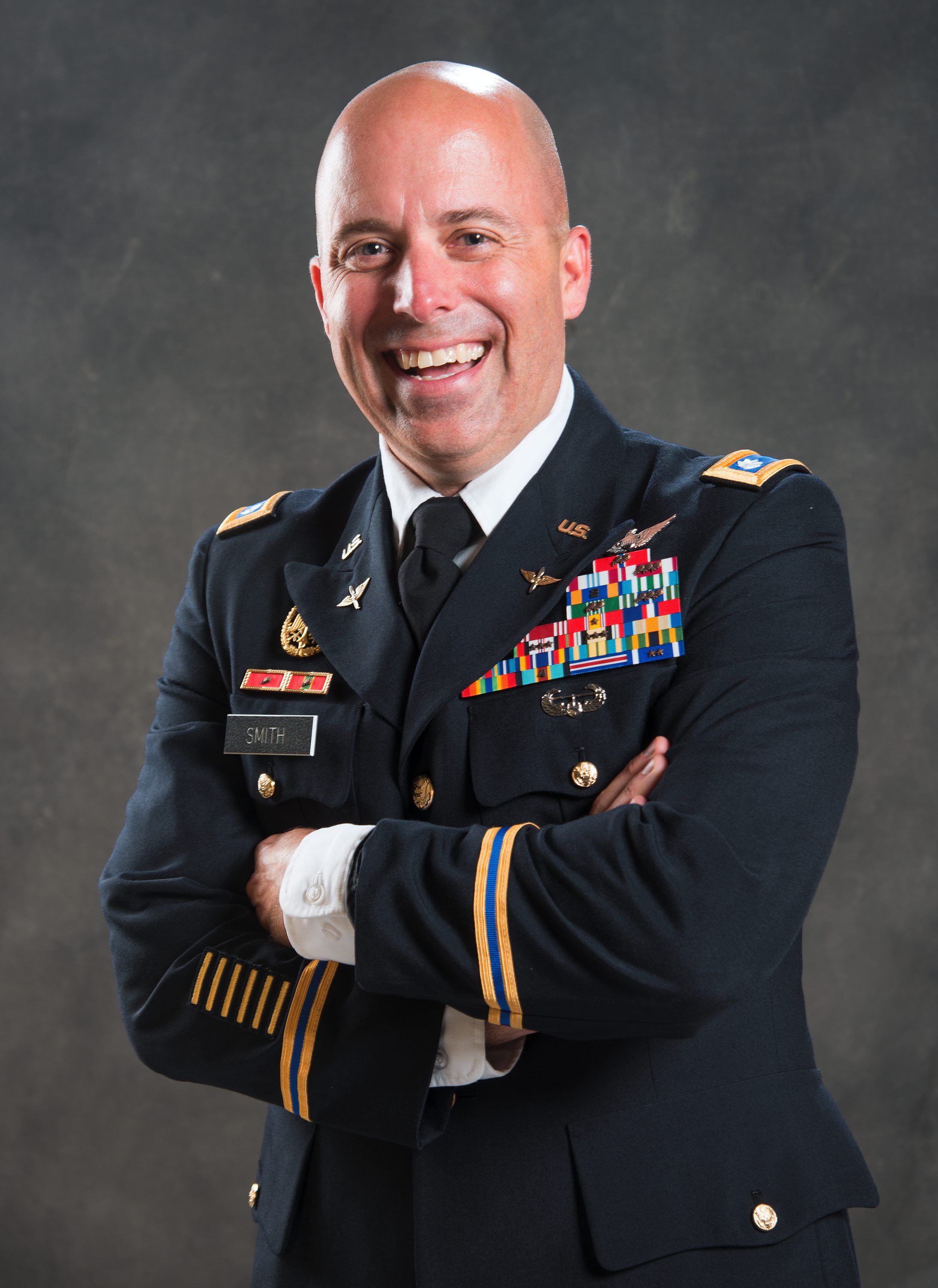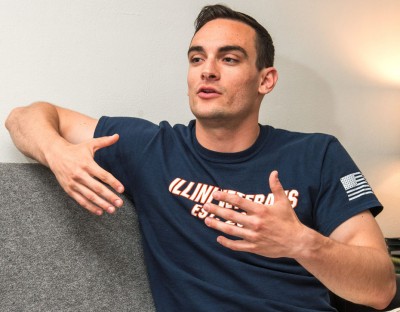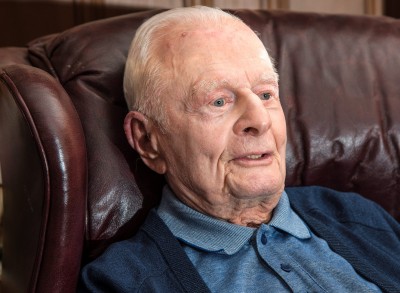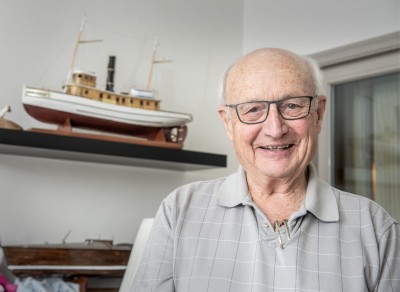Randall Smith
By Paul Wood

Photo By John Dixon/The News-Gazette
CHAMPAIGN — Lt. Col. Randall Smith has learned to move fast. He was pulled out of embattled Kosovo in 2001 to move on to Afghanistan in the wake of the Sept. 11 attacks, then to war in Iraq after only a few days at home.
He flew Chinook helicopters and commanded crews after becoming an officer in 1997.
Just back from Iraq as part of Operation Inherent Resolve to eliminate Islamic State militants, Smith, 45, is the new chairman of the Army Officer Education Program at the University of Illinois.
He earned a bachelor of arts in history from the University of California-Davis, and a master’s of science degree in logistics, materials and supply chain management from the University of Kansas.
Smith, an upstate New York native, served for many years with the 101st Airborne Division, the “Screaming Eagles.”
He had 10 ranks to his credit.
He enlisted as a private in 1989, working in military intelligence. After moving to the Army Reserves, he went back to college, planning to become a teacher. But he really enjoyed the ROTC program.
“College made all the difference,” he says.
Smith became a first lieutenant and was given an opportunity to specialize.
“You compete for active duty; not everybody gets it, especially because of downsizing. I asked for aviation and was fortunate to get it,” he says. “I was commissioned at 27.”
He moved up the ranks in the 101st, piloting a Chinook helicopter.
In Kosovo, he worked with NATO forces to take on insurgents.
“I deployed to Kosovo in 2001 for the peacekeeping mission operation Essential Harvest with NATO in Macedonia, collecting weapons from insurgents,” he says.
In Afghanistan after 9/11, he oversaw planning for heavy lift missions, as well as serving as the pilot in command until February 2003.
“It was not as dangerous as some later operations. There was sniper fire and indirect mortar attacks. The bigger danger was environmental, flying in those conditions with all the dust.”
Chinooks are made for heavy loads.
“We picked up wounded soldiers, but that was not our primary mission,” Smith says. “We were putting in troops to find weapons caches. If someone was injured, instead of waiting for a medevac, we would load them on. We had a medic on one of our four helicopters.”
Chinooks are also built for fighting back.
“We have door gunners, machine guns mounted on either side and on the tail, and there were times the door gunners were shooting back,” he says.
Then, 21 days after Afghanistan, his unit deployed for the invasion of Iraq.
At the 101st’s home base, Fort Campbell, Ky., Smith served with the transition program, working with injured soldiers to get them back to active service, or transition to the next career.
He worked with the U.S. Paralympic Committee to help create what is now called the Warrior Games.
In his most recent deployment, Smith was in division headquarters “with 19 coalition partners to help Iraq take the country back from ISIS.”
His favorite experiences were with soldiers solving problems, “the just ingenious things they would do to overcome problems.”
With a ground maintenance unit, mechanics took two destroyed Humvees “and literally rebuilt them from the ground up for a cost of $4,000 for both.”
In another operation, his soldiers recovered two helicopters that could no longer fly.
Now he’s settling in Champaign with wife Jennifer.
In ROTC, Smith says he has “a passion for developing leaders.”
“Part of the reason I took this on is just to be part of something bigger. If I can affect 60 or 80 officers over the next three or four years, and they make their units better, that’s something that’s much bigger than myself,” he says.
Smith says he has three goals at Army ROTC, borrowed from another officer: be a learning organization, do better every day to become better leaders and never quit.
Do you know a veteran who could share a story about his or her military service? Contact staff writer Paul Wood at pwood@news-gazette.com.
Read more stories from local veterans:
 Caleb Carlson
CHAMPAIGN — Caleb Carlson is new to the University of Illinois, but he’s already served a couple of tours in Afghanistan …
Caleb Carlson
CHAMPAIGN — Caleb Carlson is new to the University of Illinois, but he’s already served a couple of tours in Afghanistan …
 Richard Schlecht
DANVILLE — Today is Richard Schlecht’s 100th birthday. You wouldn’t guess it from the way he gets out of his chair to gr …
Richard Schlecht
DANVILLE — Today is Richard Schlecht’s 100th birthday. You wouldn’t guess it from the way he gets out of his chair to gr …
 Robert Bentz
CHAMPAIGN — In the tense period following the Korean War armistice, Navy Lt. Robert Bentz of Champaign spent much of his …
Robert Bentz
CHAMPAIGN — In the tense period following the Korean War armistice, Navy Lt. Robert Bentz of Champaign spent much of his …